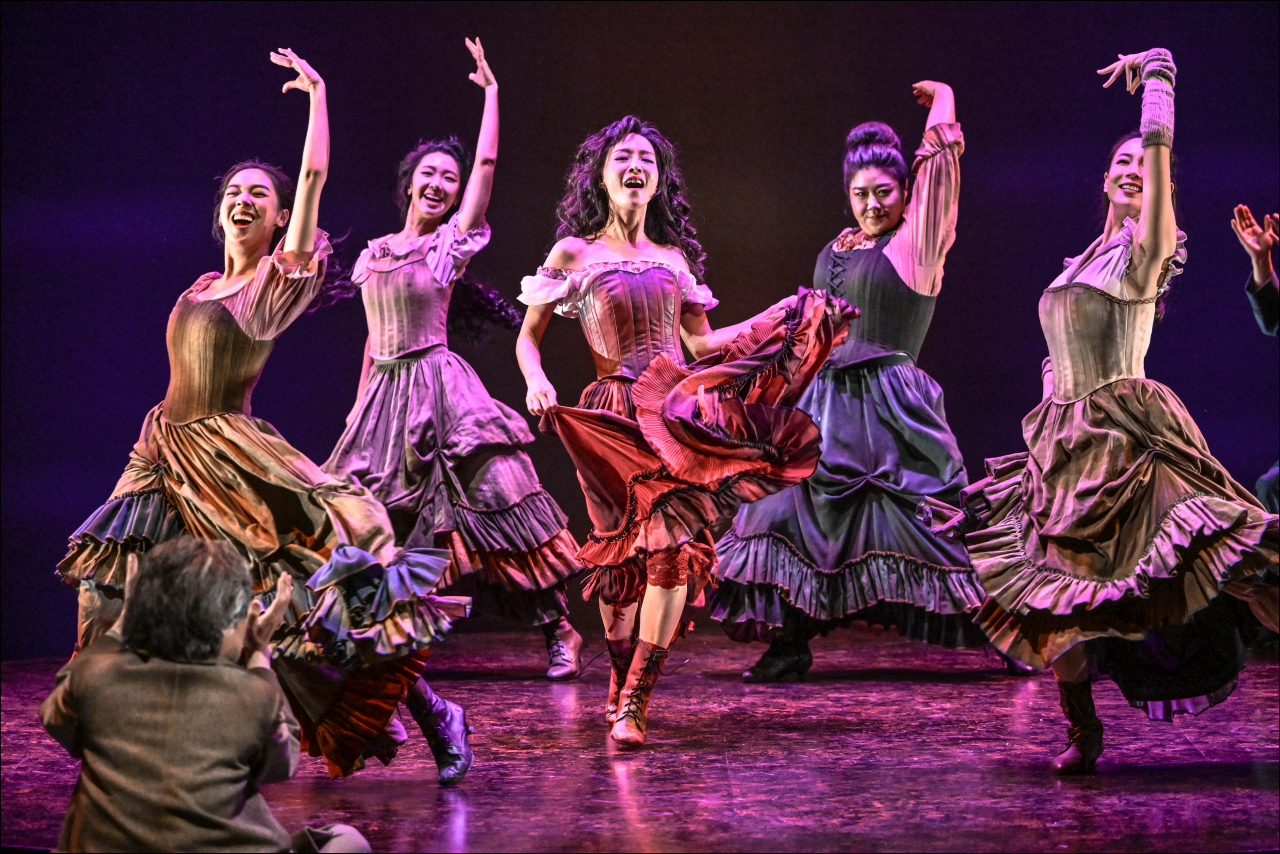[Herald Review] ‘Carmen’ redefines iconic femme fatale as stalking victim
By Hwang Dong-heePublished : Sept. 26, 2023 - 19:06

Breaking away from the traditional portrayal of the iconic femme fatale, Carmen, Seoul Metropolitan Theatre's theatrical rendition of the classic character meets audiences with the haunting specter of dating violence.
Seoul Metropolitan Theatre Artistic Director Koh Sun-woong undertook the adaptation of “Carmen” to reevaluate the character in a new light and to deliver a powerful message: Obsession is not love.
Based on Prosper Merimee's 1845 novella and Bizet's opera libretto, the original narrative unfolds in 19th-century Seville, Spain, where a young corporal named Don Jose is to marry his demure fiancee, Micaela. Then he encounters the free-spirited, untamed gypsy woman Carmen, and falls deeply in love with her. Carmen, however, becomes entangled with the bullfighter Escamillo, leading Don Jose to make tragic choices driven by jealousy.

While the overarching storyline bears similarities to the opera, the Seoul Metropolitan Theatre takes a different perspective on the traditional "Carmen."
In the opera, Carmen often appears as a seductive femme fatale, while Don Jose is portrayed as a pitiful victim of obsessive love, consumed by his feelings for the enigmatic woman.
Koh's interpretation of Carmen paints her as a character with an independent will. Also, he emphasizes the disturbing aspects of Don Jose's obsession and madness, casting Carmen as the victim of dating violence and stalking.
This shift in perspective culminates in a powerful moment when Don Jose, after killing Carmen, bellows, "I (finally) have Carmen!" -- instead of "I killed Carmen" as in the opera.
Koh referred to this line as the pivotal statement he wanted to convey in this production, emphasizing that Don Jose's actions are inexcusable.
"I hoped the audience would empathize with the fact that Carmen wasn't at fault. She merely pursued her freedom,” said Koh during a press conference on Sept. 8.

However, some aspects of the production may leave the audience puzzled, particularly Carmen's abrupt change of heart, which is left unexplained. This narrative gap implies Don Jose has been unjustly betrayed by his lover.
Additionally, the final scene, which features a beautiful shower of white flower petals after the death of Don Jose and Carmen, confuses the play’s message. Micaela's suicide, after Don Jose’s rejection, also raises questions about its necessity within the story-line.
But while the plot leaves questions unsatisfyingly open, the execution is strong. The production skillfully incorporates iconic melodies from Bizet's opera, including the famous aria "Habanera," while the cast's dancing, flamenco performance, and live guitar music add visual charm.
This is supported by an effective set design, based on a simple yet symbolic bullring motif, with a circular stage placed at the center. Characters revolve around it, mirroring the ebb and flow of power dynamics, love, and conflict among them. It also becomes a vibrant stage for the exuberant dances of the gypsy women and the confrontations of the crimson-draped bullfighter.
“Carmen” continues its run at the Sejong Center for the Performing Arts until Oct. 1.



















